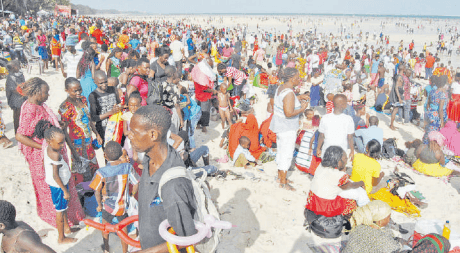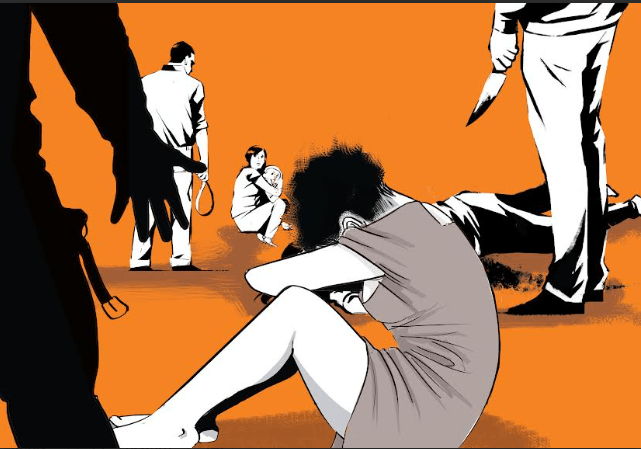Amid a plastic waste crisis in Bondeni estate in Nakuru city, a team of conservationists is transforming their community through innovative and sustainable practices.
Bidii Yangu Environmental Group has set out to address the problem of plastic bottles littering the estate and the initiative has grown into a beacon of environmental stewardship and social responsibility.
Bidii Yangu began last year to tackle the rampant plastic pollution in their estate, a densely populated area with many street children.
The children, who often sniff glue from plastic bottles, contribute to the littering problem by disposing of the bottles carelessly.
Benson Kimani, a 40-year-old community leader, recognised the problem and started Bidii Yangu with 23 dedicated members who embarked on their mission of cleaning the environment and repurposing plastic waste.
Under Kimani's leadership, Bidii Yangu has become a structured organisation focusing on collecting plastic bottles scattered across Bondeni. They do not stop at collection; they recycle and reuse the plastics to construct fences, offering a sustainable alternative to traditional fencing.
They also use the bottles as containers for tree seedlings, integrating environmental conservation into their activities.
Bidii Yangu's core mission revolves around tree planting. They plant seedlings in the repurposed plastic bottles, creating a link between waste management and reforestation.
Once the seedlings mature, they are given out to local schools for free. This initiative promotes environmental consciousness among the younger generation and ensures that a greener environment benefits many.
But despite their efforts, Bidii Yangu faces some challenges. Maina John, a member of the group, highlights water scarcity and financial constraints. Water is essential for nurturing seedlings, but Bondeni often encounters shortages. This scarcity affects the group's ability to maintain seedlings, threatening the survival of the trees.
The lack of funds limits their capacity to acquire new seedlings and expand their efforts.
Bidii Yangu's strength lies in its unity and the commitment of its members. Each person brings unique skills and experiences, contributing to the group's success.
The group operates on a volunteer basis, with members dedicating their time and efforts out of a shared passion for conservation. This camaraderie fosters a supportive environmental care system where ideas are freely exchanged and challenges are addressed collectively.
The impact of Bidii Yangu's work is clear. Their activities have considerably reduced plastic waste in Bondeni, creating a cleaner and more pleasing environment.
Their tree planting initiatives have added greenery to the area, enhancing the quality of life for residents.
Distribution of seedlings to schools instills a sense of environmental responsibility in students, ensuring that future generations continue the legacy of conservation.
The National Environment Management Authority has provided crucial data highlighting the scope of plastic waste in urban areas like Bondeni.
According to last years’ Nema report, urban centres in Kenya generate over 2,400 tons of plastic waste daily.
Bondeni's significant contribution to this total underscores the importance of Bidii Yangu's work.
Nema has recognised the group's efforts, offering them technical support and guidance on sustainable waste management practices. This partnership has enabled Bidii Yangu to better organise their waste collection and recycling processes.
The United Nations Environment Programme has been instrumental in providing a global context to Bidii Yangu's efforts.
Unep's 2023 research shows that only nine per cent of all plastic waste ever produced has been recycled. This alarming statistic has galvanised groups worldwide, including Bidii Yangu, to intensify their recycling initiatives.
Unep has also highlighted the innovative use of plastic bottles for tree planting as a best practice in urban environmental management. This endorsement has not only validated Bidii Yangu's approach but also inspired similar initiatives in other regions.
Bidii Yangu's journey is far from over. The group envisions scaling up their efforts, reaching more areas and involving more community members.
To achieve this, they seek support from external partners, including government agencies, NGOs, and private sector entities. Such partnerships could provide the resources needed to overcome their challenges, particularly water supply and funding for seedlings.
As Bidii Yangu continues to progress in environmental conservation, they inspire other communities facing similar challenges.
Their story highlights the importance of local action and the potential for small groups to make significant changes. By addressing plastic pollution and promoting reforestation, Bidii Yangu improves the local environment and contributes to the global fight against climate change.
The story of Bidii Yangu Environmental Group is one of resilience, innovation and hope. In a world grappling with environmental degradation, their efforts provide a model for sustainable community-driven initiatives. Even as they face future challenges, Bidii Yangu remains committed to creating a cleaner, greener Bondeni.

















